Whether you’re a novice or veteran gardener, getting your knockout roses off to a good start and maintaining them for blooms season after season can seem intimidating. But when it comes down to the basics, there’s no need to be overwhelmed. Healthy knockout roses require very few specific practices for success – chief among them is knowing when to fertilize your shrubs. While over-fertilizing can do more harm than good, especially with plants like these, understanding which product to use and what timeframe is ideal will make all the difference in how beautifully they bloom throughout the year. Learn why fertilizer timing matters and discover the best and most practical approaches so you can enjoy lush gardens of robustly hued knockouts!
What is Fertilizer?
Fertilizer is an essential part of rose plant care. It adds essential nutrients to the soil, promoting healthy growth and helping roses reach their full potential.
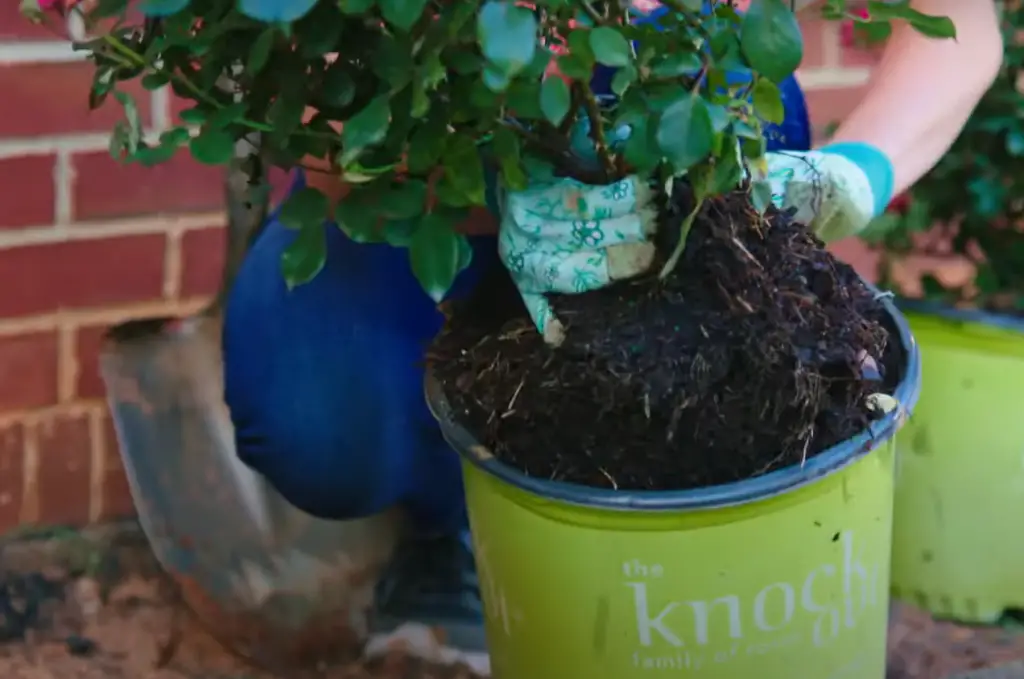
There are various types of fertilizer that cater to different needs, but all of them consist of nitrogen, phosphorus, and potassium as well as other trace elements that support the growth of plants. When used correctly, fertilizer can help roses become even more beautiful and vibrant than before! [1]
Why Fertilize Knockout Roses?
To keep your Knockout roses healthy and blooming, it’s important to fertilize them regularly. Fertilization provides essential minerals and nutrients that help the plants grow strong foliage and better resist disease and pests. A balanced fertilizer containing a mixture of essential nutrients like nitrogen, phosphorus, potassium, magnesium, sulfur, calcium, iron, and other micronutrients can lead to healthier plants and more vivid flowers. Additionally, fertilizing regularly encourages larger blooms with higher petal count. All of these benefits come together to make for healthier looking plants throughout the growing season.
When applied correctly, however, fertilizing Knockout roses can help them look and perform their best, so it’s definitely something to consider for your yard. Make sure to use a fertilizer specially formulated for roses and follow the manufacturer’s instructions when applying it. And be sure to fertilize at least once per season, usually in late spring or early summer when the plant is beginning its active growth phase.
When to Apply Fertilizer for Knockout Roses?
For best results, fertilize your Knockout roses in early spring when new growth appears. A balanced fertilizer that is higher in nitrogen than other nutrients is optimal for promoting leafy green growth and will help your plants to develop strong healthy stems. Apply the fertilizer evenly around the base of each plant making sure not to get too close as it can burn delicate root systems. Water thoroughly after applying the fertilizer. Reapply every 6-8 weeks throughout the growing season until mid summer (July or August). In late summer and fall, switch to a low-nitrogen fertilizer that promotes blooms rather than foliage. It’s also important to check soil pH levels before adding any type of fertilizer and adjust if needed.
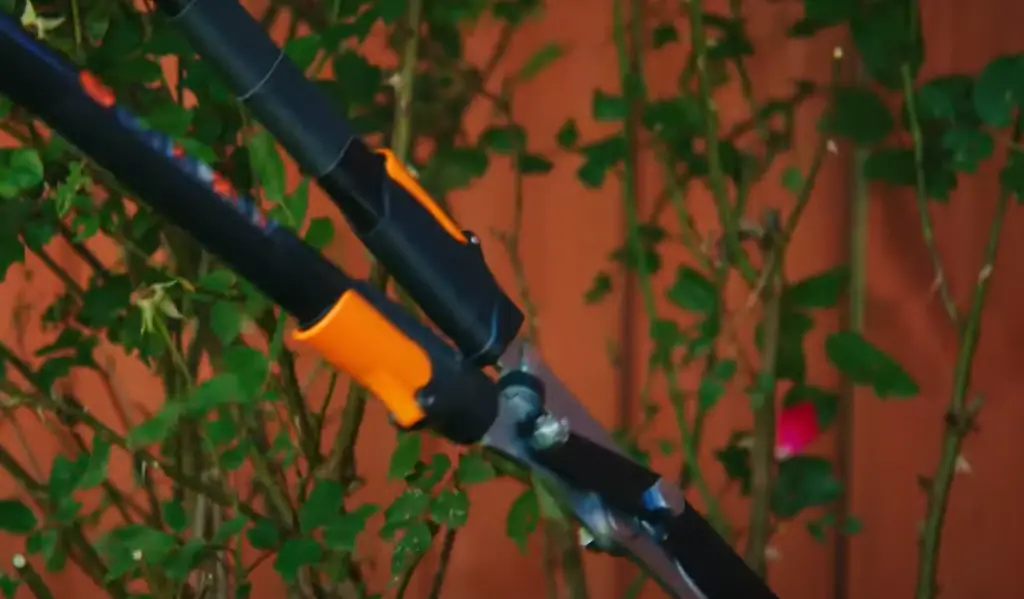
If you find yourself with an overabundance of roses, you can prune some of the branches back. Pruning in late winter or early spring will also help promote healthy growth and flowering. Make sure to use clean shears and follow proper pruning techniques when removing dead, diseased, or damaged stems. Keep in mind that overly aggressive pruning will reduce blooming for the season. Knockout roses are a surprisingly hardy and easy-to-care-for type of rose plant – as long as you’re providing them with the right nutrients at the right times! With regular fertilizing according to the above guidelines, your Knockout roses should stay healthy and vibrant throughout the year. [2]
Types of Fertilizers For Knockout Roses
Organic vs Inorganic Fertilizers
When it comes to fertilizing knockout roses, both organic and inorganic fertilizers can be used. Organic fertilizers, such as compost or manure, are slower-acting but provide a more even release of nutrients over time. Inorganic fertilizers, such as synthetic chemical-based compounds are generally quick-acting and may require more frequent applications depending on the type used. Generally speaking, organic fertilizer is preferred for use with Knockout Roses.
Slow-Release and Quick-Release Fertilizers
When selecting a fertilizer for Knockout Roses, it is important to understand the difference between slow-release and quick-release fertilizers. Slow-release fertilizers are slowly released over time, providing a more even release of nutrients. This type of fertilizer is generally preferred for roses as it helps avoid harsh “spikes” in nutrient levels and minimizes the chance of burn if applied incorrectly or too often. Quick-release fertilizers are formulated with larger amounts of nitrogen that are quickly absorbed by plants. While this can be beneficial when used correctly, it can also cause an imbalance in nutrients if not monitored closely.
Fertilizer Ratios
When selecting a fertilizer for Knockout Roses, it is important to consider the ratio of nitrogen, phosphorus, and potassium (N-P-K) listed on the label. A fertilizer that lists an N-P-K ratio of 10-10-10 is balanced in terms of nitrogen, phosphorus, and potassium respectively.
Too much nitrogen can lead to lush foliage growth at the expense of flowering and fruiting, so it’s best not to go too high with its percentage in the mix.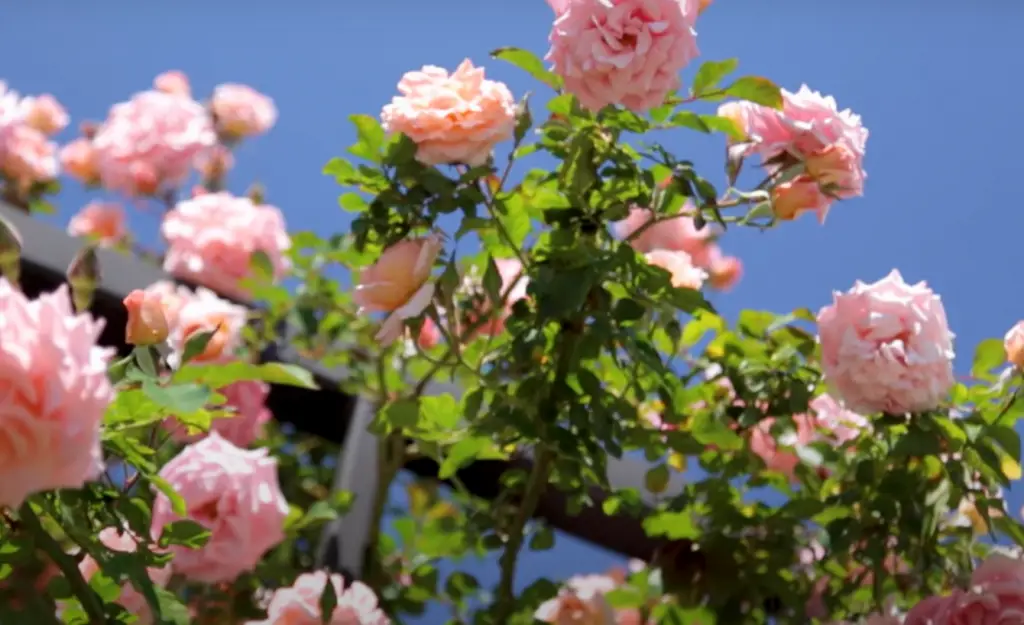
When selecting a fertilizer for Knockout Roses, it is important to read the label carefully and select one that fits your needs. Using the correct type and amount of fertilizer will help ensure your roses are healthy and vigorous for years to come. In conclusion, the type of fertilizer used to feed knockout roses can have a big impact on their health and vigor. Organic fertilizers such as compost or manure are generally preferred over chemical-based inorganic fertilizers. It is also important to choose a slow-release rather than quick-release fertilizer, as well as select one with an appropriate N-P-K ratio for best results. With the right fertilizer, you can maintain lush foliage and beautiful blooms year after year!
How to Apply Fertilizer To Your Knockout Roses?
When it comes to applying fertilizer to your Knockout roses, the key is to make sure that you use the correct amount and do so at the right time.
The best time to fertilize Knockout roses is during their growing season, which typically runs from April through October. When selecting a fertilizer, look for one with an analysis of 10-10-10 or 8-8-8, as these formulas are ideal for roses. Also be sure to read the directions on the label carefully in order to determine how much fertilizer should be applied per plant. Generally speaking, it’s best to apply only half of what’s recommended initially and then adjust accordingly if necessary.
Once you’ve selected the proper fertilizer and know how much to apply, it’s time to fertilize. Begin by removing any weeds or debris that may be around the base of each plant. Then, spread the fertilizer evenly across the soil surface using a hand cultivator or hoe. Once you’ve finished spreading the fertilizer, water your roses well until the ground is soaked.
Fertilizing your Knockout roses regularly during their growing season will help keep them healthy and looking great! Just be sure not to over-fertilize as this can cause damage to your plants. With just a little bit of care and attention, you can enjoy beautiful blooms all season long!
Additional Tips and Considerations When Fertilizing Knockout Roses
When fertilizing Knockout roses, there are some additional considerations you should keep in mind for maximum success. Water the roses before fertilizing them to ensure they can absorb the nutrients from the fertilizer more effectively. Additionally, make sure to apply fertilizer evenly around each rose bush so all of your plants get an equal dosage. [3]
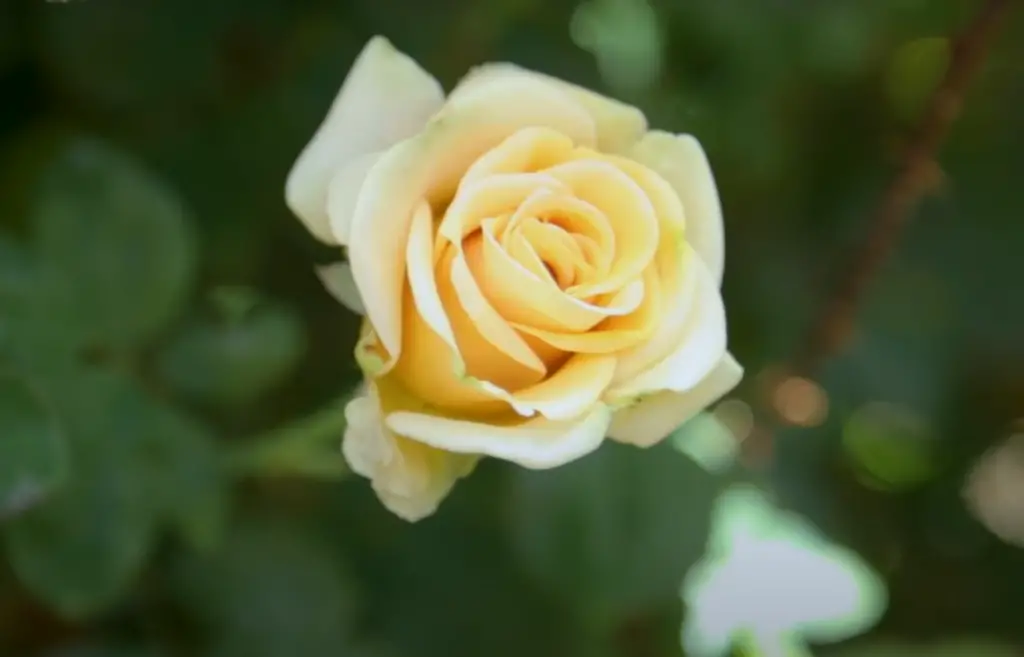
When using granular fertilizer, be sure to spread it out over a larger area than just directly at the base of the plant. This will help reduce any damage that could occur if large amounts of concentrated fertilizer is absorbed too quickly by the plant’s roots. Also, if you’re not comfortable applying chemicals close to your family or pets, opt for a natural organic option instead as these pose less risk and also provide beneficial nutrients to the plants. As with any fertilizer, it’s important to read and follow all instructions carefully to ensure proper application and safe handling of the product.
By following these tips when fertilizing your Knockout roses, you’ll give them the best chance for a long and healthy life in your garden!
What Kills Knockout Roses?
Knockout roses are notoriously hardy and require little maintenance; however, they can succumb to a few threats. The most common include disease, pests, extreme weather conditions, and poor soil nutrition. Diseases such as black spot, powdery mildew, and rust can cause leaves to yellow or brown and eventually die if left untreated. Aphids, thrips, Japanese beetles, and other pests may feed on the foliage causing it to turn yellow or drop off completely. Extreme cold can damage the roots of Knockout roses while periods of drought can cause them to become parched leading to wilting or death. Improper fertilization also has the potential to kill Knockout roses if too much is applied in one sitting or not enough is used in the long run. Applying a balanced fertilizer and monitoring for signs of pest or disease will help keep Knockout roses healthy and flourishing.
How Do You Keep Knockout Roses Blooming?
Besides fertilizing, Knockout Roses require consistent watering and pruning to keep them blooming. Watering should be done deeply and consistently throughout the growing season, especially during periods of drought or heat waves. Pruning is also important for keeping roses healthy and preventing disease. Deadheading spent flowers will help encourage new blooms to appear, while removing damaged wood or crossing branches helps promote air circulation which prevents fungal diseases. Finally, mulching around the base of the plant will help prevent weeds from competing with the rose and retain moisture in the soil. Following these steps can ensure that your Knockout Roses are kept healthy and blooming year after year! [4]
What Do Overwatered Knock Out Roses Look Like?
Overwatered Knock Out roses can look droopy and wilted, with yellowing foliage. The leaves may also show signs of browning or appear to be rotting, and the stems will be soft and mushy instead of firm.

In extreme cases, the plant may start dropping leaves or flowers prematurely. Excessive moisture can also lead to fungal diseases like powdery mildew or black spot which can damage the plant further. If you suspect that your Knock Out rose has been overwatered, it’s important to take corrective steps right away. Make sure to reduce watering immediately and inspect regularly for any signs of disease before they become too severe.
What Does Magnesium Deficiency In Roses Look Like?
Roses need magnesium for healthy development and growth. A lack of magnesium in the soil can lead to yellowing leaves, along with small, misshapen leaves and weak stems.
For Knockout Roses, a balanced fertilizer such as a 10-10-10 should do the trick. When applying any type of fertilizer, it’s important to follow label directions precisely; too much can burn the plants’ roots. If signs of magnesium deficiency persist after application of a balanced fertilizer, then a specialty rose fertilizer that contains more magnesium may be necessary. In any case, it’s best to fertilize Knockout roses every 4–6 weeks during their growing season. This will help ensure they receive enough of all the essential nutrients they need for optimal growth and development. [5]FAQ
How often should I fertilize knockout roses?
It is recommended to fertilize knockout roses every 6-8 weeks during the growing season (spring and summer). If you live in a cooler climate, it may be best to wait until spring before you start fertilizing. In areas with cold winters, you can skip fertilizing altogether during the dormant season (fall and winter). It is important to use a fertilizer specifically designed for roses so that your plants will get all of the nutrients they need.
How much fertilizer should I use when feeding my knockout roses?
The amount of fertilizer used on your plants depends on their size and age. Generally, it is recommended to apply one cup of 10-10-10 rose food per plant when they are first planted. Once established, mature plants should get about ¼ cup of fertilizer for every foot of height. If you are using a granular fertilizer, spread it evenly around the base of the plant and water it in well after application.
What type of fertilizer is best for knockout roses?
It is best to use a fertilizer specifically designed for roses since they have different nutritional needs than other plants. Look for a balanced fertilizer like 10-10-10 or 8-8-8 that contains equal amounts of nitrogen, phosphorous and potassium.
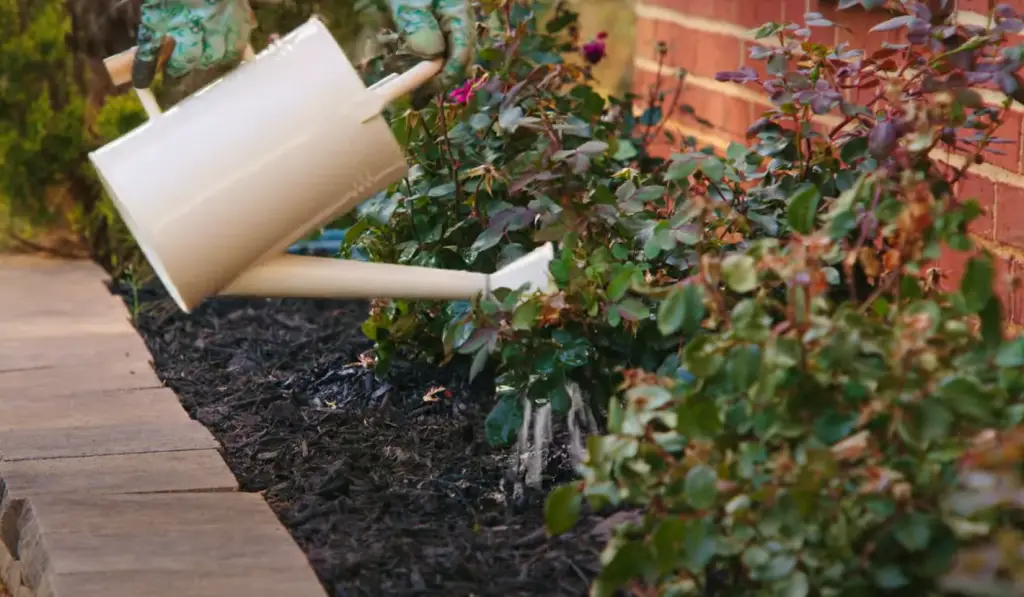
These nutrients will help promote healthy leaves, blooms, and root growth in your plants. Many fertilizers also contain micronutrients such as iron and magnesium which are beneficial to roses. Avoid fertilizers with high levels of nitrogen, as this can cause lush foliage growth at the expense of flowers.
Are there any special considerations I should take when fertilizing knockout roses?
Yes. Over-fertilizing your plants can lead to poor plant health and even death, so it is important to follow directions for application amounts. If you are experiencing nutrient deficiencies in your roses, soil testing may be beneficial in determining which nutrients need to be added. Additionally, avoid applying fertilizer when temperatures exceed 90°F (32°C) or during periods of drought stress as these conditions can increase the chance of burning your plants. Finally, always water your roses after applying fertilizer to help reduce the risk of burning and improve absorption by the roots.
When should I fertilize my roses?
Knockout roses should be fertilized twice a year – once in the spring and again in mid-summer. This will encourage growth, ensure plants remain healthy, and promote blooming. For best results, use a balanced fertilizer with equal parts of nitrogen, phosphorus and potassium. Be sure to follow the directions on the product label for dosage recommendations as too much fertilizer can damage your plants. Water your rose bushes well prior to applying fertilizer so that it can be absorbed into the soil quickly and effectively. Finally, be mindful of when you’re fertilizing—it’s best to avoid fertilizing while there is bloom or shortly before a frost is expected. That way you won’t risk damaging your blooms or causing winter injury due to cold temperatures after application. With these tips, you’ll be able to keep your Knockout roses healthy and blooming all summer long!
Do knockout roses like fertilizer?
Yes, they do. Knockout roses are known to respond well to regular fertilizer applications throughout the growing season. When should you fertilize knockout roses? It is best to start fertilizing in early spring just as new growth appears and continue through summer until about two months before the first expected frost. During this period of time, use a balanced slow-release fertilizer such as an 8-8-8 or 10-10-10 blend at a rate of 1 pound per 100 square feet of bed area. Then apply every 4–6 weeks until mid-summer when applications can be increased to once a month for optimal performance. For mature plants that receive regular pruning, liquid feeds like fish emulsion or seaweed extract may also be used once a month during the growing season. Fertilizers with higher nitrogen content can be used to help promote bloom production in early summer. For best results, avoid using fertilizers that are high in phosphorus as this can lead to excessive foliage growth at the expense of flowers.
Useful Video: How to Care for Knock Out Roses
Conclusion
In general, the best time to fertilize knockout roses is in late winter or early spring, so that your plants can benefit from the nutrient boost as they begin new growth. Fertilizing again in the summer months will also help keep your roses healthy and blooming throughout the season. However, be sure not to over-fertilize as this can cause damage to both your plants and soil. If you’re uncertain about when and how often to fertilize knockouts, it’s best to consult with a local horticulturist or garden center for advice on specific care instructions. With proper care and attention, knockout roses will provide years of beautiful blooms for your garden!
References:
- https://www.prairiegardens.com/blog/knockout-rose-care/
- https://www.knockoutroses.com/fertilizing
- https://www.gardenerbasics.com/blog/how-to-care-for-knockout-roses
- https://plantcaretoday.com/fertilizing-knockout-roses.html
- https://www.bhg.com/gardening/flowers/roses/feeding-roses/





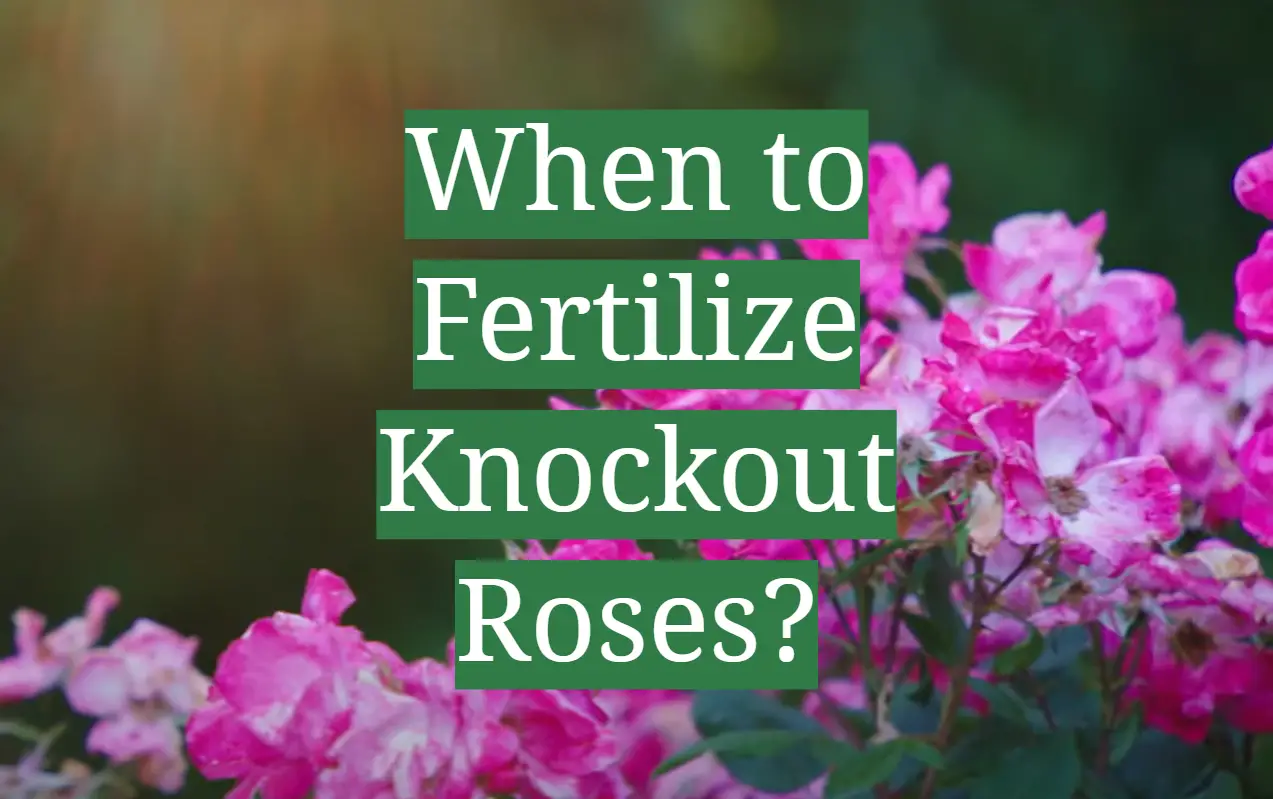

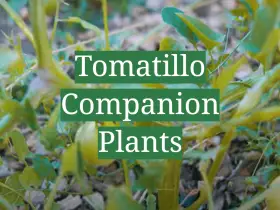


Leave a Reply
View Comments